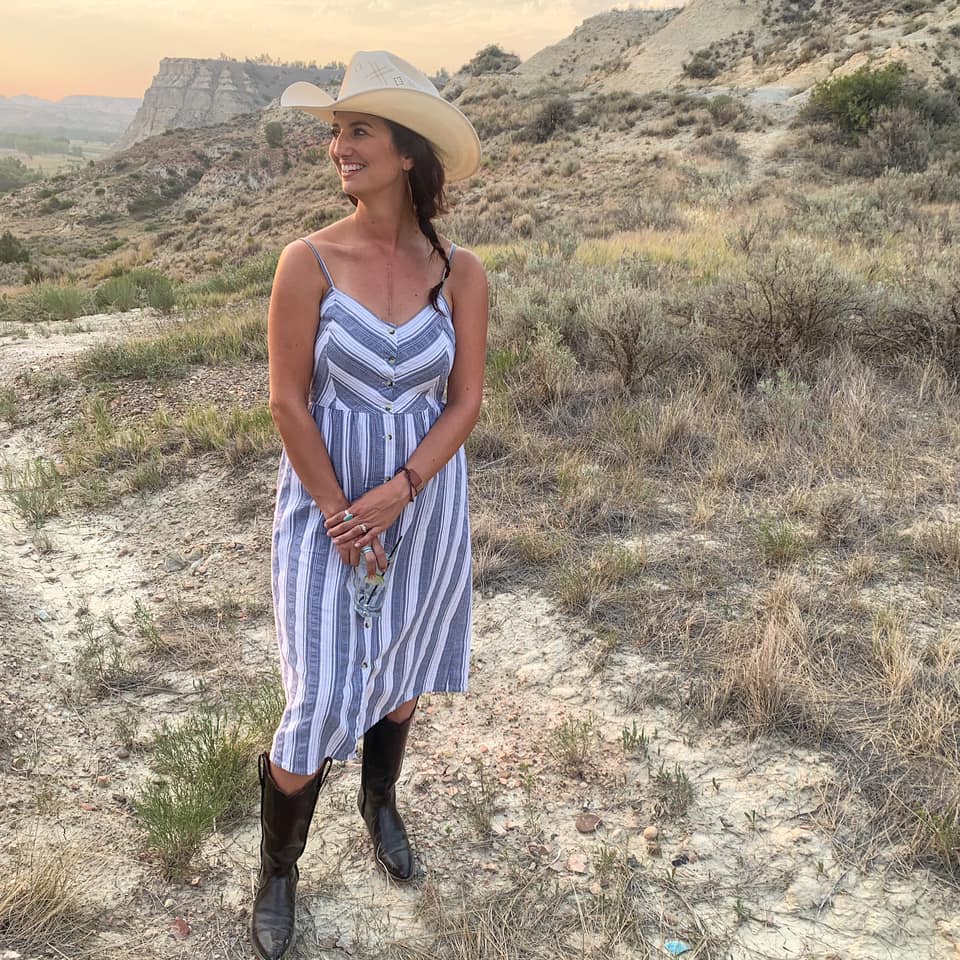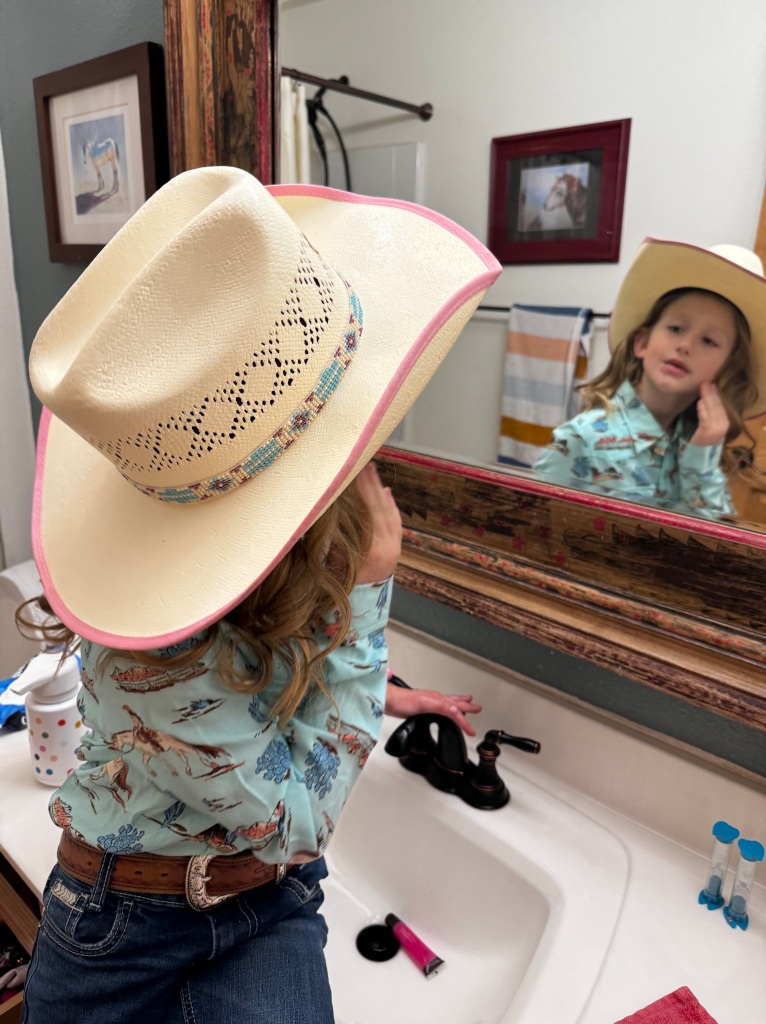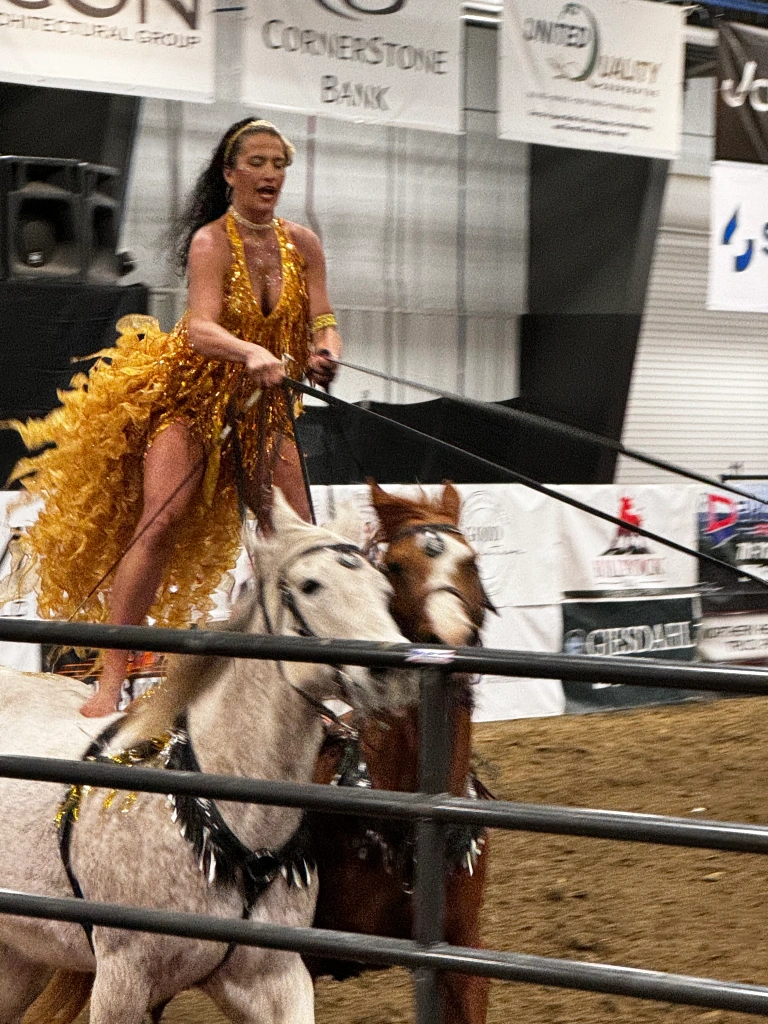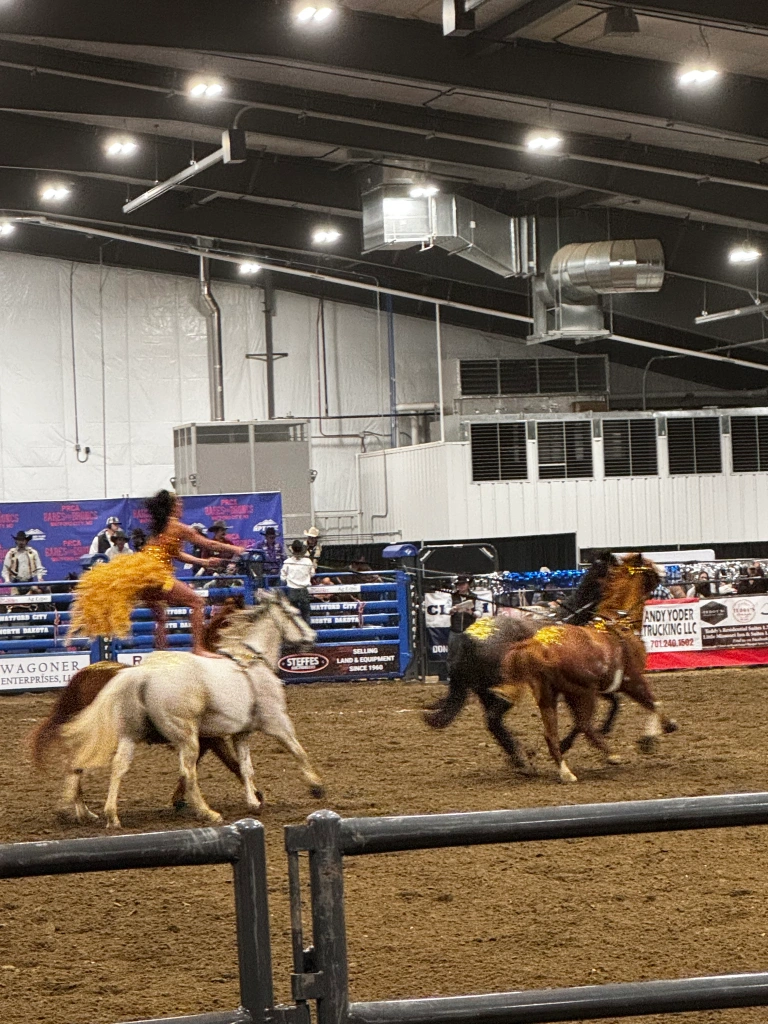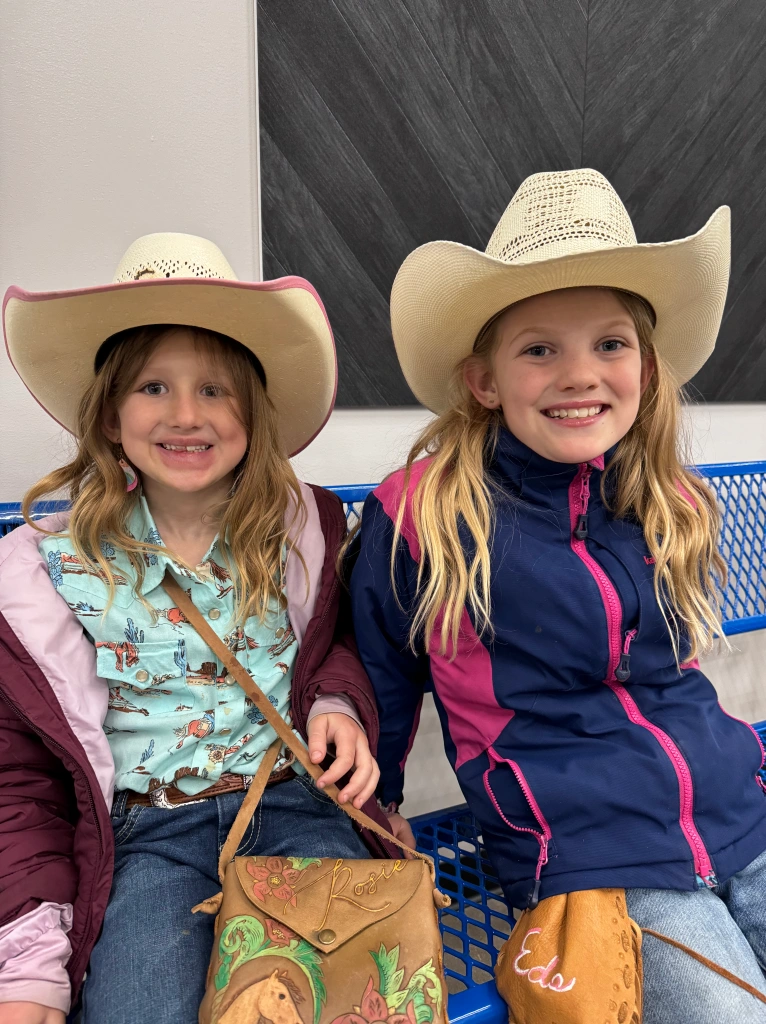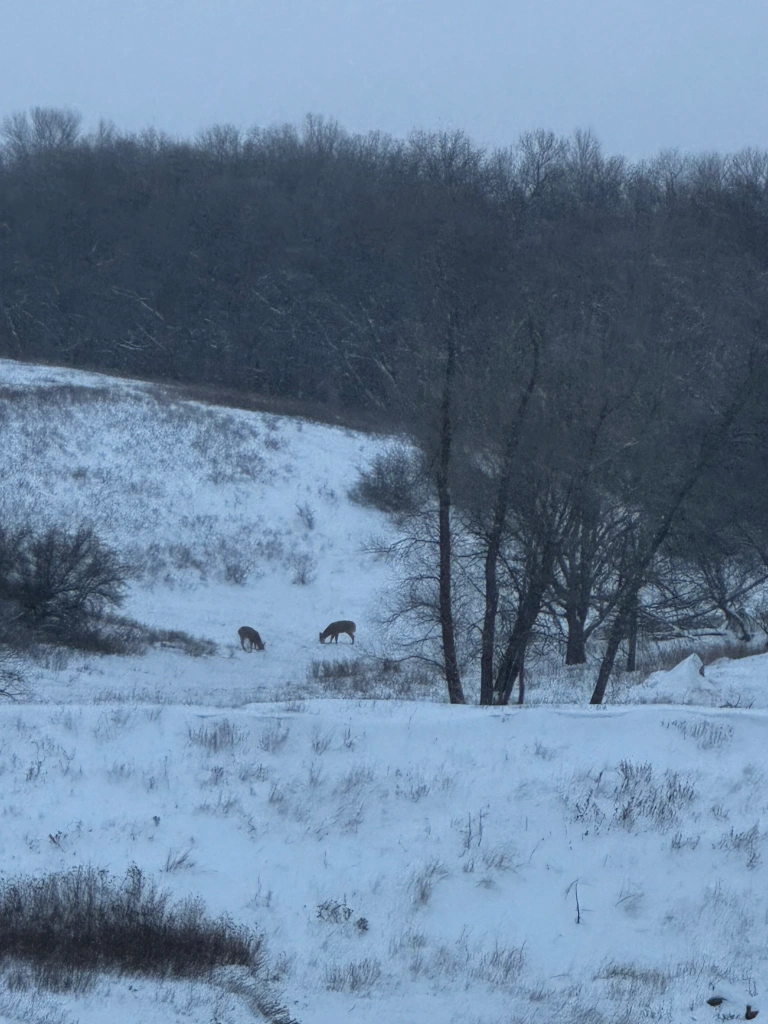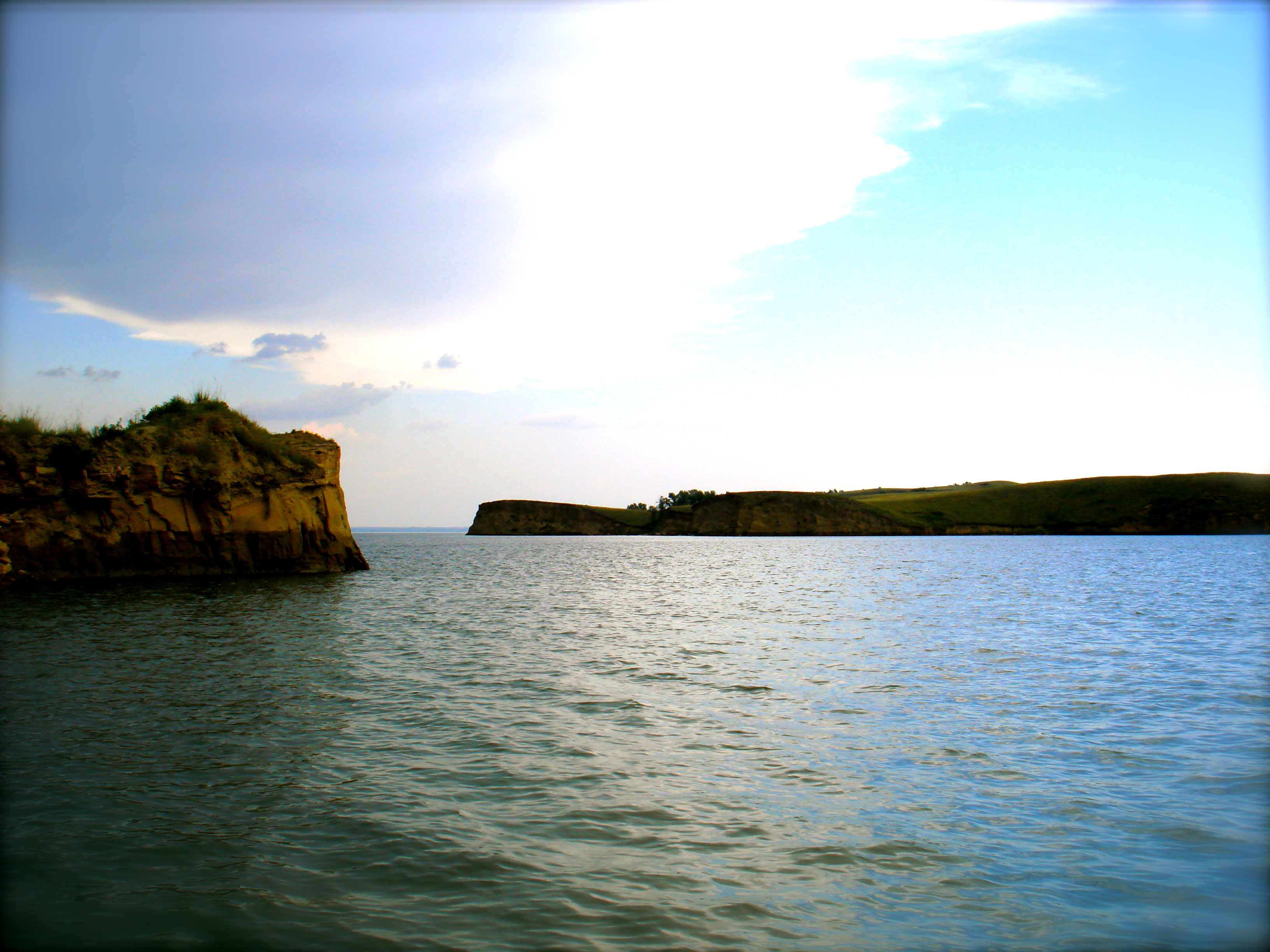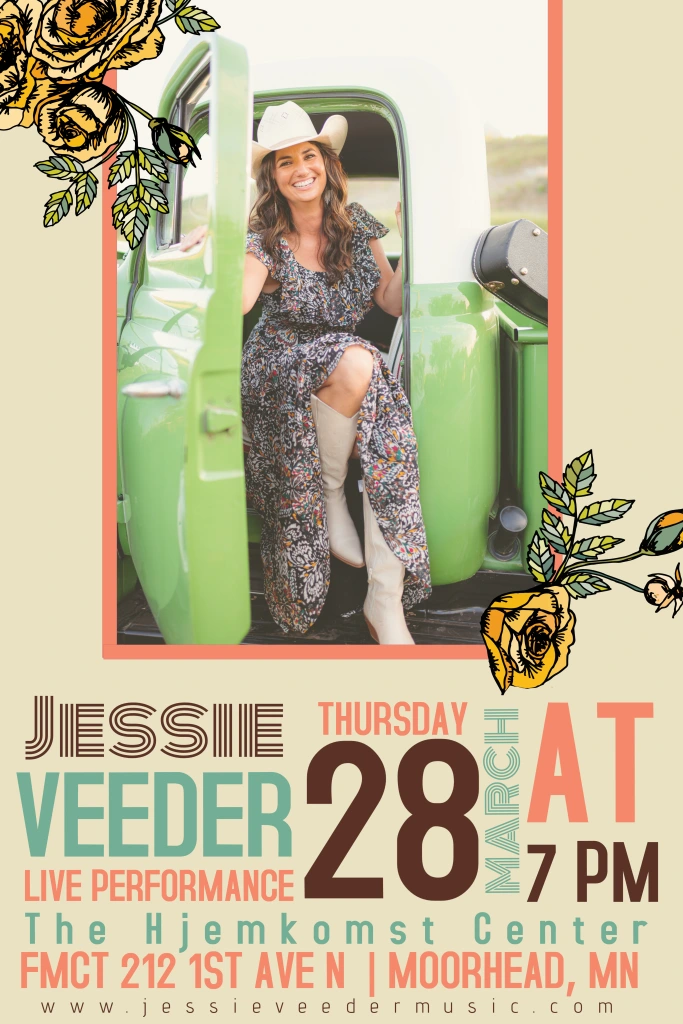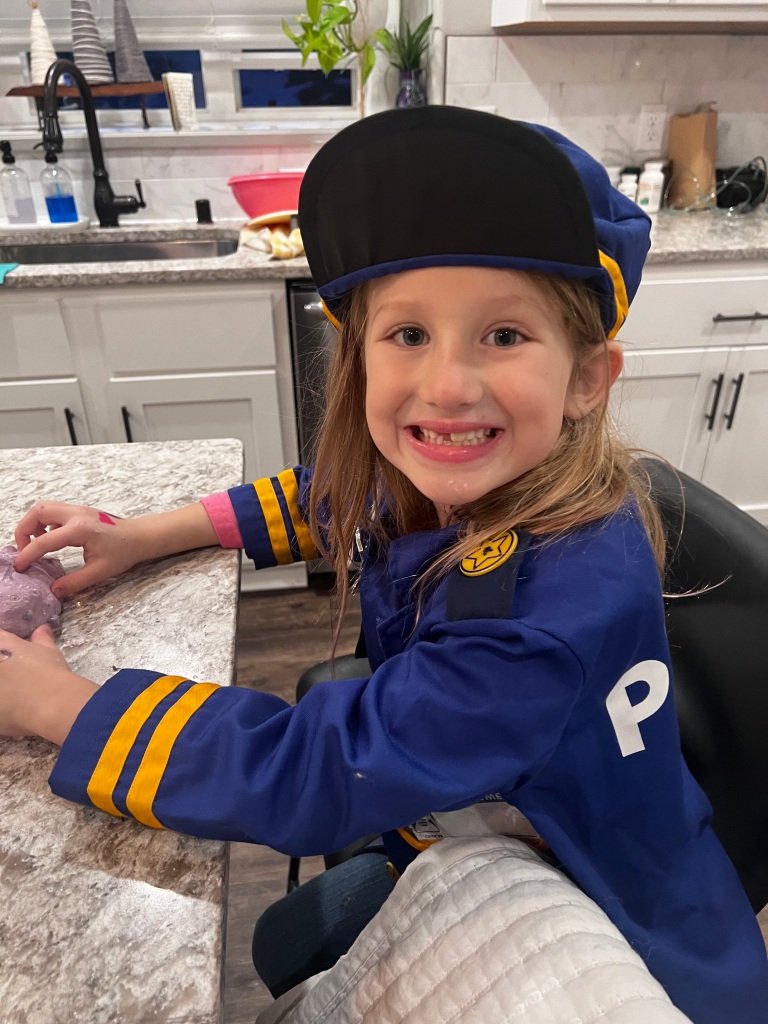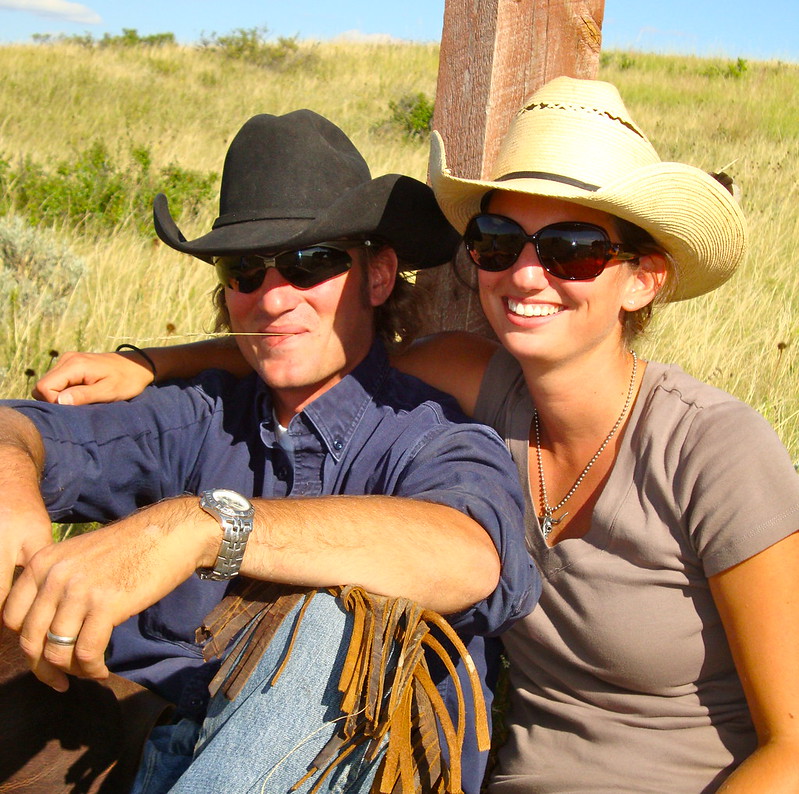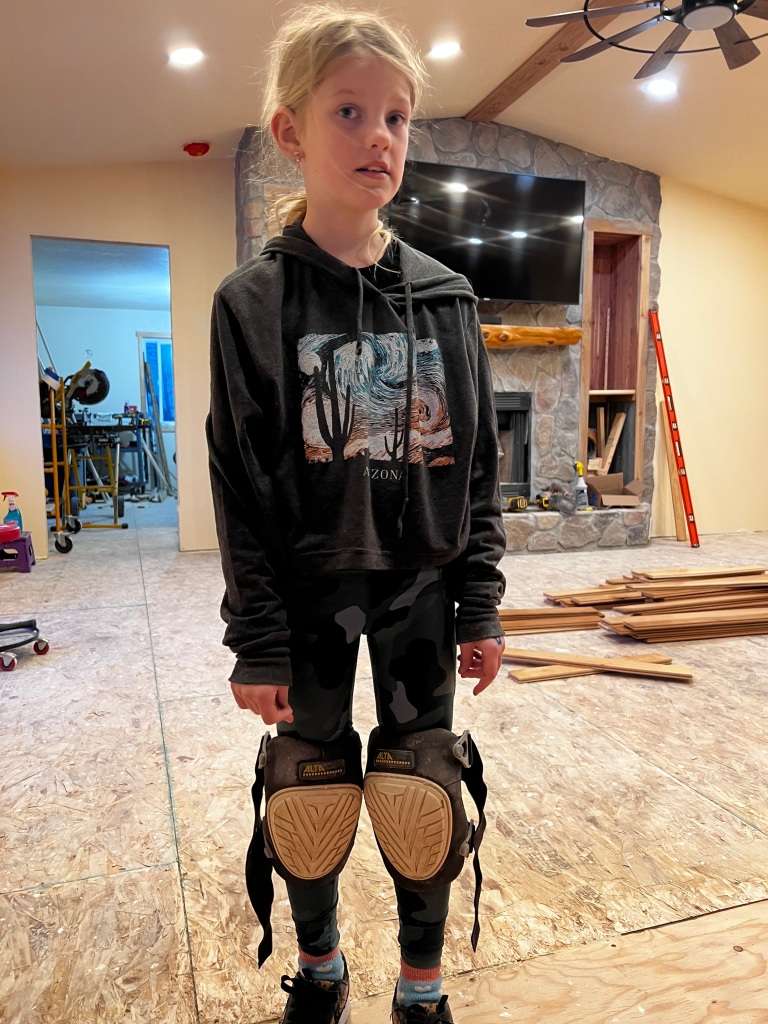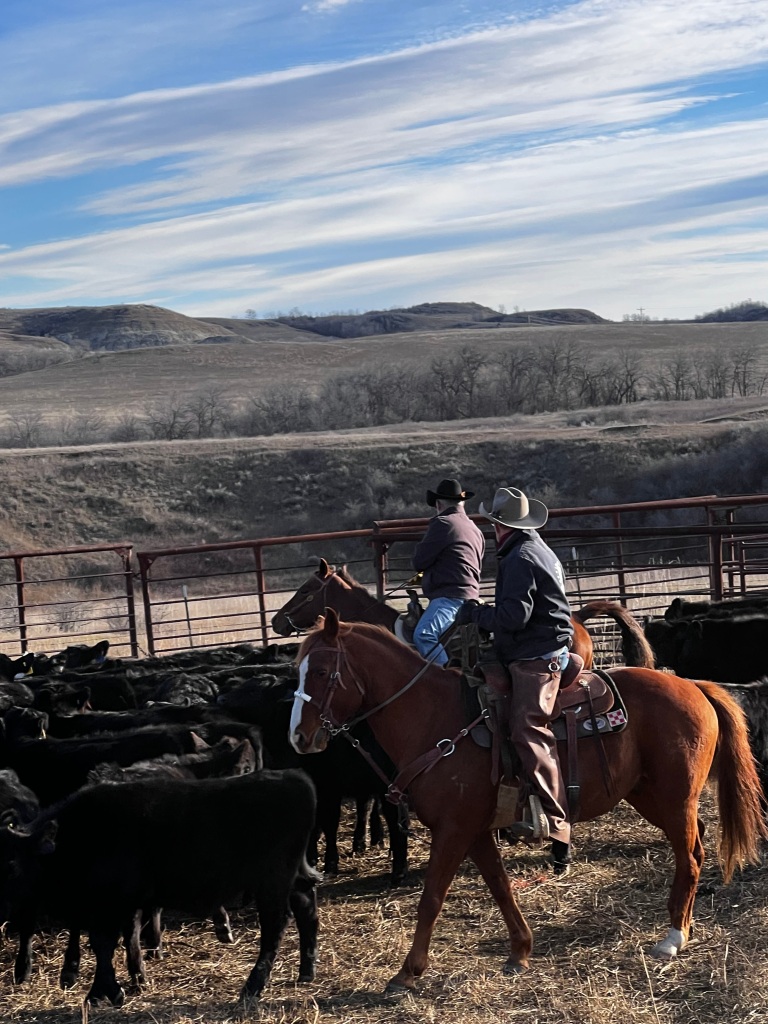
Welcome to the warm-up North Dakota. As I write this the rain is soaking the grass and I swear it’s turning a neon green right before my eyes. We had ten calves yesterday, and likely a half-dozen or so more will be born in the rain. But they won’t mind, they will be licked clean by their mommas and kept in the protection of the tall grass and they’ll wait for the sun so they can stand up and buck and kick and run, just like us people it seems. Waiting for the sun to launch us alive again.
When you’ve lived on a piece of land for most of your life, you become a part of the rhythm of things. You inherently know the timing of a change in seasons and when to expect longer light. And, like the wild things, no matter how domesticated we become, we change with those seasons too. Like, I know the first crocus is accompanied by my dad taking the first horse out for a spring ride. And then comes the first calves and no more dark morning drives to school, followed quickly by later bedtimes…

Last Saturday after spending as much time as I could outside finding things that needed to be done, I had to head in and figure out supper. Instead of frozen pizza, I picked a recipe I hadn’t made before and regretted every minute of cooking and shredding the chicken. The task and the warm, calm evening made it tempting to turn in my adult badge and join the kids outside. They were playing with their cousins on the playground in the yard, bringing toys and dolls that had been cooped up in the house outside to get dirty and worn out in the spring sun, out in the sand and dirt. And I don’t mind about that sort of thing, because outside is where kids are supposed to be. Outside is where I wanted to be, and so I had the sliding door cracked so I could feel the fresh breeze and hear them laughing.

All I wanted to do was climb the hills and look for the sweet peas my dad said he spotted that day. Sometimes the business of my current, middle-aged life prevents me from getting there first, but I knew just where to find them: follow the two-track trail up to the field and take a detour before the gate to the hill on the edge of the tree line. You’ll find the yellow flowers poking out among the granite rocks. And just after the sweet peas come the blue bells and after the blue bells the earth comes alive with lady slippers and paintbrushes and prairie roses and wild daisies. Next come the cone flowers. Then, in the heat, the tiger lilies follow and then the sunflowers come in with the grasshoppers and the ripening tomatoes in my garden.
And none of these names we have for the flowers are likely correct. You probably call them something different, but when it comes to wildflowers, names don’t matter.

We’ll start serving supper later and later and now, it will sneak up on us gradually until the thick of July when we come in at ten o’clock to eat hot dogs and beans. It had already begun last weekend when, at 8 pm, we took our first bites. But there was still time for me to escape to those granite rocks after helping clear the table. And so I raced the light a bit, the dogs running out ahead of me to sniff out any mice or gophers in their path while I was sniffing out sweet peas. It wasn’t a long hunt, because there they were, right where I’ve found them year after year after year. In a few more warm days, after this soaking rain, that yellow flower will fill the hillsides, too many to gather into a bouquet, but that evening I picked just a few for the mason jar on my table. I clenched the stems in my left hand and took a big whiff and headed back home to beat the dark, humming a little welcome song to the warm up and to more simple hot dog suppers…



